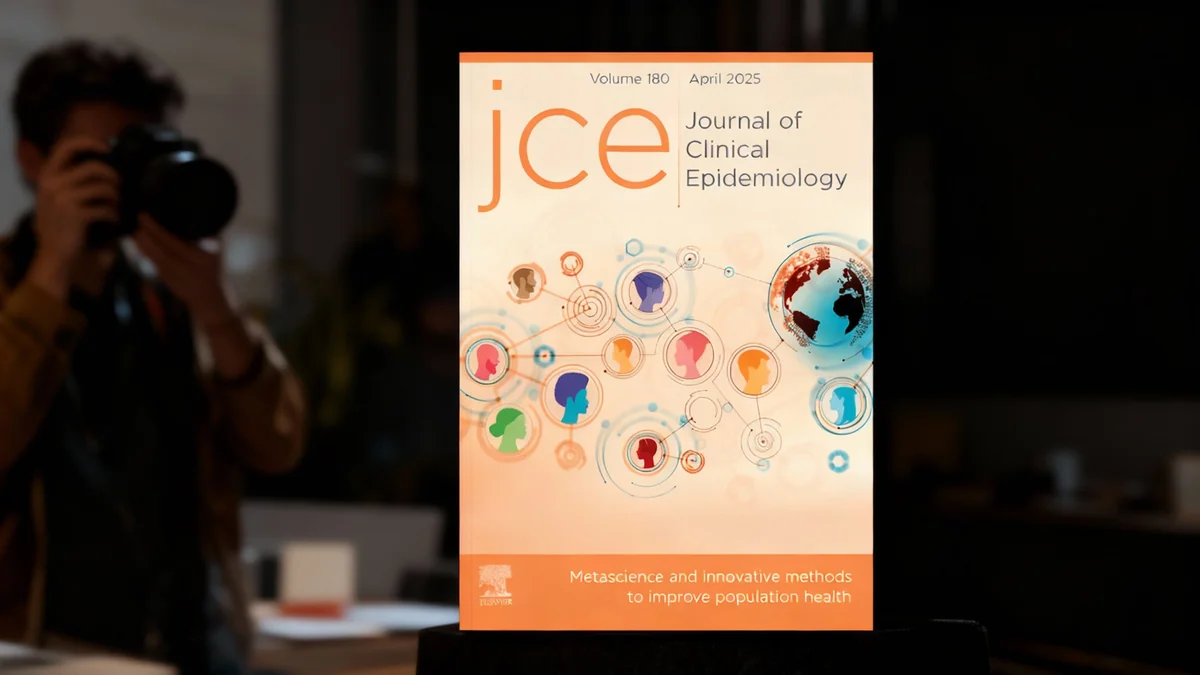A prominent medical journal has retracted a study that made the extraordinary claim that the placebo effect is the primary driver of healing in clinical trials. The paper, published by the Journal of Clinical Epidemiology, an Elsevier publication, was pulled following significant criticism from the scientific community regarding its methodology and conclusions.
The senior author of the now-retracted article has a documented history of controversial research, including previous papers on COVID-19 vaccines and masks that were also retracted. The journal has acknowledged that its own editorial and peer-review processes failed in this instance.
Key Takeaways
- A study published in the Journal of Clinical Epidemiology claiming the placebo effect explains 69% of treatment outcomes has been retracted.
- The retraction was due to a misleading title, methodological errors, and the inclusion of a previously retracted study in its analysis.
- Senior author Harald Walach has had four papers retracted, including two making controversial claims about COVID-19 vaccines and masks.
- Critics argued the study fundamentally misunderstood how treatment effects are measured in clinical trials.
- The journal has taken responsibility for failures in its peer-review process that allowed the flawed paper to be published.
Details of the Retraction
The study, which appeared in the journal in December 2024, analyzed 30 separate clinical trials covering five different medical conditions. Its primary conclusion was that the placebo effect was responsible for 69% of the observed treatment effects, suggesting that the act of participating in a trial was more beneficial than the treatments themselves.
However, the journal issued an undated retraction notice citing several critical flaws. According to the notice, the authors agreed that the paper's title was misleading and that the text should have been more nuanced. The journal also found that the researchers had misrepresented a key formula and included a previously retracted study in their meta-analysis.
Despite these issues, the journal stated it “did not find any evidence of deliberate attempts to mislead or any scientific misconduct on the part of the authors.” It also noted that the authors themselves maintain that these mistakes do not change their overall findings.
What is a Retraction?
In academic publishing, a retraction is a formal withdrawal of a published paper. It typically occurs when there is clear evidence of unreliable findings, either due to honest error or scientific misconduct such as data fabrication or plagiarism. A retraction serves as a permanent public record that the paper's conclusions should not be trusted.
Scientific Community Raises Concerns
The paper drew immediate scrutiny from other researchers. In a letter to the editor published in February, Stephen Rhodes, a researcher at University Hospitals Cleveland Medical Center, highlighted a “number of errors that lead to some sweeping conclusions.”
Rhodes wrote that the study’s claims “reflect a misunderstanding of what a ‘treatment effect’ is.” He observed that in a placebo-controlled trial, the measured benefit of a treatment is calculated specifically to exclude the placebo effect, making the paper's central conclusion logically flawed.
Another prominent critic, Gideon Meyerowitz-Katz, a research fellow at the University of Wollongong in Australia, noted that the study's results seemed to suggest that “simply being in a clinical trial is the main component of healing,” a conclusion that challenges the foundation of evidence-based medicine.
While the journal editors did not agree with all the criticisms raised, the concerns were significant enough to prompt a full review and eventual retraction of the article.
By the Numbers: The Study's Claim
The retracted paper analyzed 30 clinical trials and concluded that the placebo effect accounted for 69% of the variance in treatment outcomes. This figure was the basis for its controversial assertion that the placebo effect is the “major driver” of healing in these studies.
A Pattern of Controversial Research
The senior author of the study, Harald Walach, has faced similar scrutiny in the past. This retraction marks the fourth time his work has been removed from the scientific record. His previous retractions include:
- A paper claiming that for every three lives saved by COVID-19 vaccines, two people were killed by them.
- A study asserting that children’s masks trap dangerous levels of carbon dioxide, which was later republished in a different journal.
These incidents in 2021 resulted in Walach losing a university position. He is currently affiliated with the Change Health Science Institute in Switzerland and the Next Society Institute in Lithuania.
The repeated publication and subsequent retraction of Walach's work raise questions about the integrity of the academic peer-review system, which is designed to prevent flawed or unsubstantiated research from being published.
Journal Acknowledges Peer-Review Failures
In a significant move, the Journal of Clinical Epidemiology took ownership of its role in the incident. The retraction notice stated that the situation “has raised important questions in respect of the editorial and peer review process for this manuscript, for which the Journal bears responsibility.”
David Tovey, the journal's co-editor-in-chief, publicly reflected on the breakdown in procedure. “As a journal editor, I have to reflect on whether this situation could have been avoided,” he stated, signaling a potential review of the journal's internal validation processes.
This admission highlights a persistent challenge in scientific publishing: ensuring that the peer-review process is rigorous enough to catch not only outright fraud but also fundamental methodological errors and misleading conclusions before they enter the public domain and potentially influence policy or public opinion.





